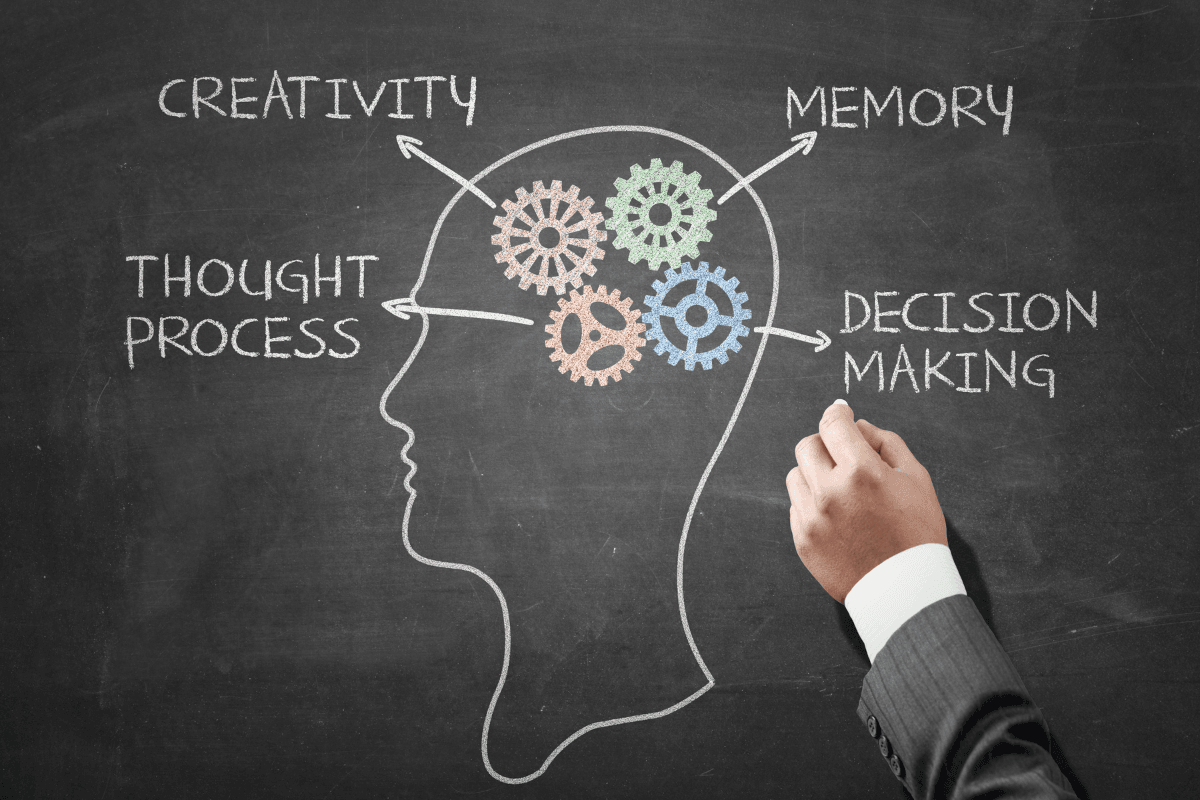Are you struggling to decide between life coaching vs executive coaching? This article will help you understand the key differences between these two coaching types and their unique benefits. We’ll explore the target audience for each coaching style, examine their specific advantages, and discuss common methods used in both. By the end, you’ll have the information you need to make an informed decision about which coaching approach aligns best with your personal or professional goals.
Life Coaching vs Executive Coaching: Which One Fits Your Goals?
Understanding the Definition of Life Coaching and Executive Coaching

Life coaching and executive coaching offer distinct approaches to personal and professional growth. Life coaching focuses on overall well-being and personal goals, while executive coaching targets leadership skills and organizational strategy. Understanding these differences helps individuals choose the right coaching experience for their needs, whether it’s improving employee engagement or developing a robust training landscape.
Identifying the Focus Areas of Life Coaching
Life coaching focuses on personal growth and self-awareness. Coaches work with clients to identify goals, overcome obstacles, and develop strategies for success in various aspects of life, including career, relationships, and personal well-being.
Key areas of life coaching include building empathy, fostering a sense of community, and enhancing self-awareness. These skills can contribute to improved employee retention and overall life satisfaction. The coaching process often involves:
| Focus Area | Description |
|---|---|
| Goal Setting | Identifying and clarifying personal and professional objectives |
| Self-Discovery | Exploring values, strengths, and areas for improvement |
| Action Planning | Developing strategies to achieve goals and overcome challenges |
| Accountability | Regular check-ins to track progress and adjust plans as needed |
Recognizing the Goals of Executive Coaching
Executive coaching aims to enhance leadership skills and drive organizational success. This form of coaching focuses on personal development within a professional context, helping executives improve their decision-making, communication, and strategic thinking abilities. Through targeted learning and introspection, executives can become more effective leaders and positively impact their organizations.
The goals of executive coaching often include improving management techniques, enhancing emotional intelligence, and developing a growth mindset. This process involves intensive training and development sessions that encourage executives to reflect on their profession and leadership style. By addressing these areas, executive coaching can lead to improved team performance, better organizational culture, and increased business success.
Key Differences in Coaching Methods
Life coaching and executive coaching employ distinct methods tailored to their specific goals. Life coaches focus on personal empowerment and overall well-being, often using techniques that encourage self-reflection and emotional intelligence. Executive coaches, on the other hand, concentrate on organizational leadership and strategic thinking, utilizing methods that enhance decision-making and management skills.
The coaching approach also differs in terms of scope and duration. Life coaching typically addresses a broader range of personal and professional topics, with sessions that may continue over an extended period. Executive coaching tends to be more focused on specific organizational objectives, often with a predetermined timeframe aligned with business goals. Both methods aim to fulfill the client’s desire for growth and development, whether in their personal life or within their professional role.
The coaches stood ready, their expertise honed. Now, they searched for those who needed their guidance most.
Examining the Target Audience for Each Coaching Type

Life coaching and executive coaching serve different audiences with unique needs. Life coaching benefits individuals seeking personal growth and motivation, while executive coaching targets professionals aiming to enhance their leadership skills. Understanding these distinctions helps people assess their personal or professional needs and choose the right coaching tool for their employment and health goals.
Who Benefits From Life Coaching?
Life coaching benefits individuals seeking personal growth and clarity in their life direction. This form of coaching creates a space for clients to explore their goals, values, and potential, often leading to increased job satisfaction and overall well-being. The concept of life coaching appeals to those who desire a more fulfilling life experience, regardless of their current professional status.
While executive coaching training focuses on leadership skills, life coaching takes a holistic approach to personal development. It serves people from various backgrounds who want to improve different aspects of their lives, such as relationships, career transitions, or work-life balance. A life coach acts as a supportive consultant, guiding clients through self-discovery and helping them overcome obstacles to achieve their personal and professional aspirations.
Ideal Candidates for Executive Coaching
Executive coaching targets high-level professionals and leaders seeking to enhance their managerial skills and organizational impact. These individuals often participate in group coaching masterminds to gain insights from peers and experts. The ideal candidates for executive coaching typically hold senior positions and want to improve their leadership abilities, strategic thinking, and decision-making processes.
Executive coaches work with clients to evaluate their current performance and identify areas for growth. This process involves assessing emotional intelligence and behavioral patterns to develop strategies for improvement. Many executive coaches are certified by the International Coaching Federation, ensuring a high standard of practice and adherence to ethical guidelines in their coaching approach.
Assessing Your Personal or Professional Needs
Assessing personal or professional needs involves a careful evaluation of one’s goals, challenges, and aspirations. This process often requires research into various coaching methodologies, including the application of artificial intelligence in leadership development. By understanding their unique situation, individuals can determine whether they need support in personal growth or professional advancement.
The assessment process helps clarify whether life coaching or executive coaching is more appropriate. For those seeking to enhance their company‘s performance and leadership skills, executive coaching may be a better choice. Conversely, individuals looking to improve their overall perception of life and personal fulfillment might find life coaching more beneficial. This self-reflection ensures that the chosen coaching aligns with the individual’s specific needs and objectives.
Exploring the Benefits of Life Coaching

Life coaching offers numerous benefits, focusing on personal growth, self-discovery, and improved life satisfaction. This approach helps individuals enhance relationships, achieve work-life balance, and gain clarity on life goals. While executive coaching targets professional development, life coaching addresses broader aspects of personal well-being, often incorporating elements of Gestalt psychology to promote holistic growth and improved teamwork skills.
Enhancing Personal Growth and Self-Discovery
Life coaching enhances personal growth and self-discovery through strategic thinking and mentorship. Coaches guide clients to explore their values, strengths, and aspirations, fostering a deeper understanding of themselves. This process often leads to improved social skills and a clearer sense of purpose.
By examining their leadership style and personal methodology, individuals can identify areas for improvement and set meaningful goals. Life coaching provides a supportive environment for clients to develop new perspectives and strategies, ultimately leading to enhanced personal and professional satisfaction. The benefits of this self-discovery process include:
| Benefit | Description |
|---|---|
| Increased self-awareness | Better understanding of personal values and motivations |
| Improved decision-making | Clearer perspective on life choices and their impacts |
| Enhanced confidence | Greater belief in personal abilities and potential |
| Better goal-setting | More effective identification and pursuit of meaningful objectives |
Improving Relationships and Work-Life Balance
Life coaching helps individuals improve their relationships and achieve better work-life balance through targeted goal setting and knowledge acquisition. Coaches guide clients to identify areas of conflict or stress in their personal and professional lives, then develop strategies to address these issues. This process often leads to increased happiness and satisfaction in both spheres.
By focusing on professional development and personal growth simultaneously, life coaching enables individuals to create a harmonious balance between their career aspirations and personal life. Coaches with proper certification help clients prioritize their time and energy, leading to more fulfilling relationships and a sense of accomplishment in their professional endeavors. This holistic approach contributes to overall well-being and success.
Gaining Clarity on Life Goals
Life coaching helps individuals gain clarity on their life goals through structured coaching programs and active listening. Coaches work with clients to identify their values, passions, and aspirations, helping them set meaningful and achievable goals. This process often leads to increased productivity and a sense of purpose in both personal and professional life.
By providing valuable information and guidance, life coaches assist clients in overcoming obstacles that may hinder goal achievement. They help individuals develop action plans, track progress, and make necessary adjustments along the way. This focused approach enables clients to align their daily actions with their long-term objectives, resulting in greater satisfaction and success.
Understanding the Advantages of Executive Coaching

Executive coaching offers distinct advantages for leaders seeking to enhance their professional skills and organizational impact. This approach focuses on boosting leadership abilities and team performance, improving decision-making and problem-solving skills, and developing effective communication strategies. By addressing these key areas, executive coaching helps leaders manage stress, foster collaboration, and increase accountability within their teams.
Boosting Leadership Skills and Team Performance
Executive coaching boosts leadership skills and team performance by leveraging technology and enhancing problem-solving abilities. Leaders work with coaches to develop strategies that increase efficiency and confidence in their management roles. This process often involves analyzing current practices and implementing new approaches to drive organizational success.
Through executive coaching, leaders learn to optimize their decision-making processes and foster a culture of innovation within their teams. Coaches help executives identify areas for improvement and develop action plans to address these challenges. This targeted approach leads to increased productivity and improved team dynamics, ultimately enhancing overall organizational performance.
Enhancing Decision-Making and Problem-Solving Abilities
Executive coaching enhances decision-making and problem-solving abilities by focusing on strategic planning and entrepreneurship skills. Coaches work with executives to develop structured approaches for handling uncertainty and making informed choices. This process often involves analyzing past decisions, identifying patterns, and creating frameworks for future decision-making.
Through executive coaching, leaders learn to gather and interpret feedback more effectively, improving their ability to navigate complex business challenges. Coaches help executives develop critical thinking skills and encourage them to consider multiple perspectives when addressing problems. This approach leads to more robust decision-making processes and innovative solutions to organizational issues:
| Skill | Improvement Area |
|---|---|
| Strategic Planning | Long-term goal setting and resource allocation |
| Entrepreneurship | Risk assessment and opportunity identification |
| Uncertainty Management | Adapting to changing market conditions |
| Feedback Integration | Incorporating diverse perspectives into decision-making |
Developing Effective Communication Strategies
Executive coaching develops effective communication strategies by focusing on leadership presence and interpersonal skills. Coaches work with executives to enhance their ability to convey ideas clearly, listen actively, and adapt their communication style to different audiences. This process often involves role-playing exercises and feedback sessions to refine communication techniques.
Through executive coaching, leaders learn to navigate challenging conversations and build stronger relationships with team members and stakeholders. Coaches help executives identify communication barriers and develop strategies to overcome them. This targeted approach leads to improved collaboration, increased trust within teams, and more effective leadership overall.
The benefits of executive coaching were clear. Now, let’s explore the methods both types of coaches use to help clients succeed.
Analyzing Common Methods and Techniques Used in Both Coaching Types

Life coaching and executive coaching employ distinct methods tailored to their goals. Life coaches focus on personal growth using self-reflection techniques, while executive coaches concentrate on organizational leadership and strategic thinking. Both approaches share some common strategies, such as goal-setting and accountability. Understanding these methods helps individuals choose the right coaching for their needs.
Coaching Techniques Unique to Life Coaching
Life coaching employs unique techniques that focus on personal growth and self-discovery. Coaches often use visualization exercises to help clients imagine their ideal future, encouraging them to explore their aspirations and set meaningful goals. This approach helps individuals gain clarity on their life direction and identify potential obstacles.
Another technique specific to life coaching is values clarification. Coaches guide clients through exercises to identify their core values, which serve as a foundation for decision-making and personal fulfillment. By aligning their actions with their values, individuals can experience greater satisfaction and purpose in their daily lives.
Executive Coaching Approaches and Frameworks
Executive coaching approaches often utilize frameworks such as the GROW model (Goals, Reality, Options, Will) to structure coaching sessions. This method helps executives identify their objectives, assess their current situation, explore potential strategies, and commit to action plans. Coaches may also employ 360-degree feedback assessments to gather insights from colleagues and subordinates, providing a comprehensive view of the executive’s leadership style.
Another common framework in executive coaching is emotional intelligence (EI) development. Coaches work with executives to enhance their self-awareness, self-regulation, motivation, empathy, and social skills. By improving these EI components, leaders can better navigate complex interpersonal dynamics, make more informed decisions, and create a positive organizational culture.
Identifying Overlapping Strategies and Best Practices
Life coaching and executive coaching share several common strategies and best practices. Both approaches emphasize goal-setting, active listening, and accountability. Coaches in both fields use powerful questioning techniques to help clients gain insights and develop action plans. These overlapping methods create a foundation for personal and professional growth.
Another shared practice is the use of assessments and feedback tools. Life coaches and executive coaches often employ personality assessments, skills inventories, and feedback mechanisms to help clients gain self-awareness and identify areas for improvement. This data-driven approach enhances the coaching process and leads to more targeted interventions:
| Overlapping Strategy | Application in Life Coaching | Application in Executive Coaching |
|---|---|---|
| Goal-setting | Personal life objectives | Organizational targets |
| Active listening | Understanding personal challenges | Identifying leadership obstacles |
| Accountability | Following through on personal commitments | Meeting professional deadlines |
| Assessments | Personality and values inventories | 360-degree feedback |
The methods overlap, but the goals differ. Now, let’s decide which path suits you best.
Making an Informed Decision Between Life Coaching and Executive Coaching

Choosing between life coaching and executive coaching requires careful consideration of personal goals, professional aspirations, and individual needs. This section explores how to evaluate personal objectives, consider career growth opportunities, and select the right coach. By examining these factors, individuals can make an informed decision that aligns with their unique circumstances and desired outcomes.
Evaluating Personal Goals and Needs
Evaluating personal goals and needs involves a thorough self-assessment of one’s current situation and desired outcomes. Individuals should consider their immediate challenges, long-term aspirations, and areas where they seek growth or improvement. This process helps determine whether the focus should be on overall life satisfaction or specific professional development.
By examining personal priorities, individuals can align their coaching choice with their unique circumstances. Those seeking comprehensive personal growth might lean towards life coaching, while professionals aiming to enhance their leadership skills may find executive coaching more suitable. This evaluation ensures that the selected coaching approach addresses the most pressing needs and goals effectively.
Considering Professional Growth Opportunities
When considering professional growth opportunities, individuals should assess their career goals and the skills they need to develop. Executive coaching often provides targeted support for leadership development, strategic thinking, and organizational management. Those aiming for high-level positions or seeking to enhance their impact within their current role may find executive coaching particularly beneficial.
Life coaching, while broader in scope, can also contribute to professional growth by addressing personal barriers that may hinder career advancement. This approach helps individuals align their career choices with their values and life goals, potentially leading to greater job satisfaction and overall success. When evaluating coaching options, consider the following factors:
- Current career stage and future aspirations
- Specific skills or competencies needed for advancement
- Personal challenges affecting professional performance
- Desired balance between work and personal life
How to Choose the Right Coach for Your Journey
Choosing the right coach involves careful consideration of credentials, experience, and compatibility. Individuals should research potential coaches’ backgrounds, certifications, and areas of expertise to ensure alignment with their specific needs. It’s crucial to verify that the coach has relevant experience in either life coaching or executive coaching, depending on the desired focus.
Prospective clients should schedule initial consultations with potential coaches to assess their coaching style and approach. This allows individuals to gauge the coach’s communication skills, empathy, and ability to understand their unique situation. Selecting a coach who resonates with one’s personality and goals increases the likelihood of a successful coaching relationship:
- Review coach credentials and certifications
- Assess relevant experience in life or executive coaching
- Schedule initial consultations to evaluate compatibility
- Consider coaching style and approach
- Ensure alignment with personal or professional goals
Frequently Asked Questions
What are the key differences between life coaching and executive coaching?
Life coaching focuses on personal growth and life goals, while executive coaching targets professional development and leadership skills. Life coaches work with individuals on various aspects of life, whereas executive coaches primarily assist high-level professionals in improving their workplace performance and advancing their careers.
Who is the ideal candidate for life coaching versus executive coaching?
Life coaching typically benefits individuals seeking personal growth and fulfillment, while executive coaching targets professionals aiming to enhance leadership skills and career performance. Life coaches often work with clients on broader life goals, whereas executive coaches focus on business-specific challenges and organizational objectives.
How can life coaching benefit personal growth and development?
Life coaching can catalyze personal growth by providing guidance, accountability, and tailored strategies. Coaches help clients identify goals, overcome obstacles, and develop new skills. Through this process, individuals gain clarity, confidence, and motivation to achieve their full potential and create lasting positive changes in their lives.
What specific advantages does executive coaching offer for career advancement?
Executive coaching provides personalized guidance, enhancing leadership skills, decision-making abilities, and emotional intelligence. It offers tailored strategies for career growth, helps identify blind spots, and improves communication skills, ultimately accelerating professional development and boosting organizational effectiveness.
How do I choose between life coaching and executive coaching?
Life coaching focuses on personal growth and general life goals, while executive coaching targets professional development and leadership skills. Consider your primary objectives: personal fulfillment or career advancement. Assess your current life stage and professional position to determine which coaching style aligns best with your needs and aspirations.
Your Breakthrough Starts Here—Choose Buttimer Consulting Today!
Whether you need personal growth through life coaching or leadership development via executive coaching, the right guidance can transform your potential into results. At Buttimer Consulting, we specialize in tailored coaching solutions that empower individuals and professionals to break through barriers, clarify goals, and achieve extraordinary outcomes. Our transformative speaking, coaching, and counseling services are designed to meet you where you are—and take you where you want to be. Ready to unlock your next level? Call (404) 949-9500 today to discover which coaching approach aligns with your vision, and let’s start your journey to success.









